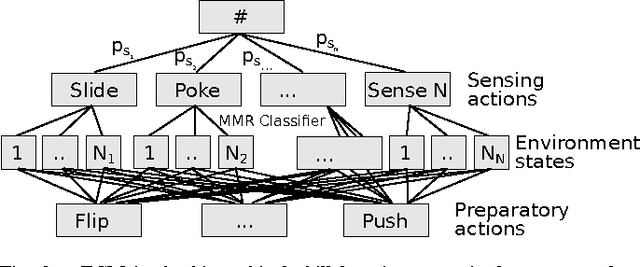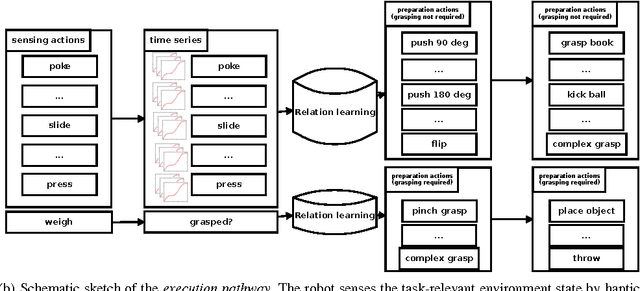Robotic Playing for Hierarchical Complex Skill Learning
Paper and Code
Aug 13, 2017



In complex manipulation scenarios (e.g. tasks requiring complex interaction of two hands or in-hand manipulation), generalization is a hard problem. Current methods still either require a substantial amount of (supervised) training data and / or strong assumptions on both the environment and the task. In this paradigm, controllers solving these tasks tend to be complex. We propose a paradigm of maintaining simpler controllers solving the task in a small number of specific situations. In order to generalize to novel situations, the robot transforms the environment from novel situations into a situation where the solution of the task is already known. Our solution to this problem is to play with objects and use previously trained skills (basis skills). These skills can either be used for estimating or for changing the current state of the environment and are organized in skill hierarchies. The approach is evaluated in complex pick-and-place scenarios that involve complex manipulation. We further show that these skills can be learned by autonomous playing.
 Add to Chrome
Add to Chrome Add to Firefox
Add to Firefox Add to Edge
Add to Edge